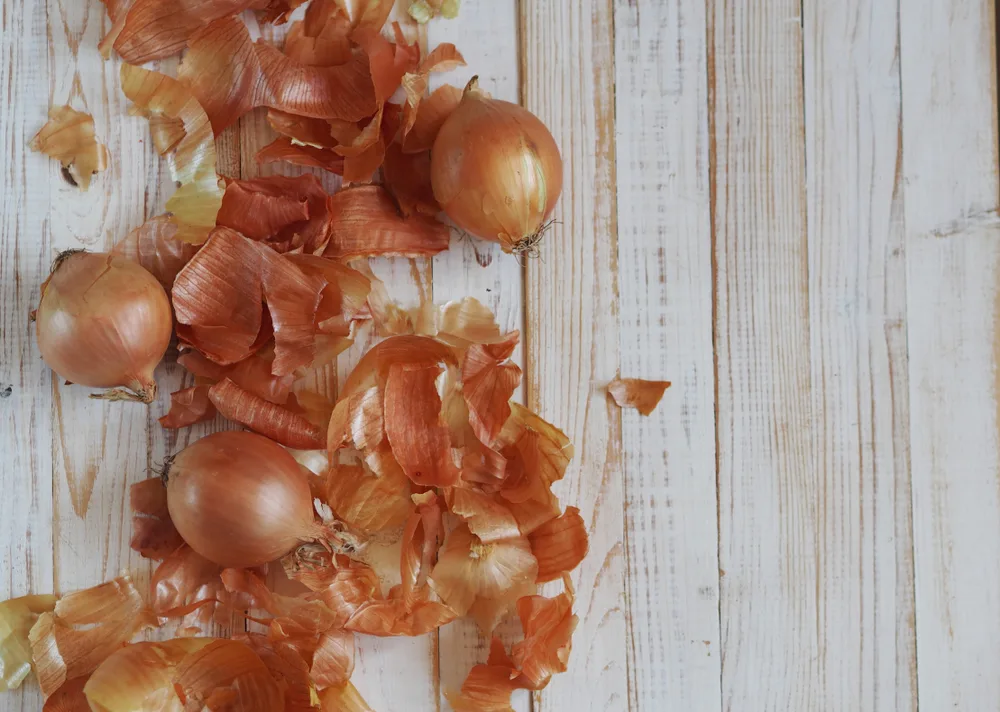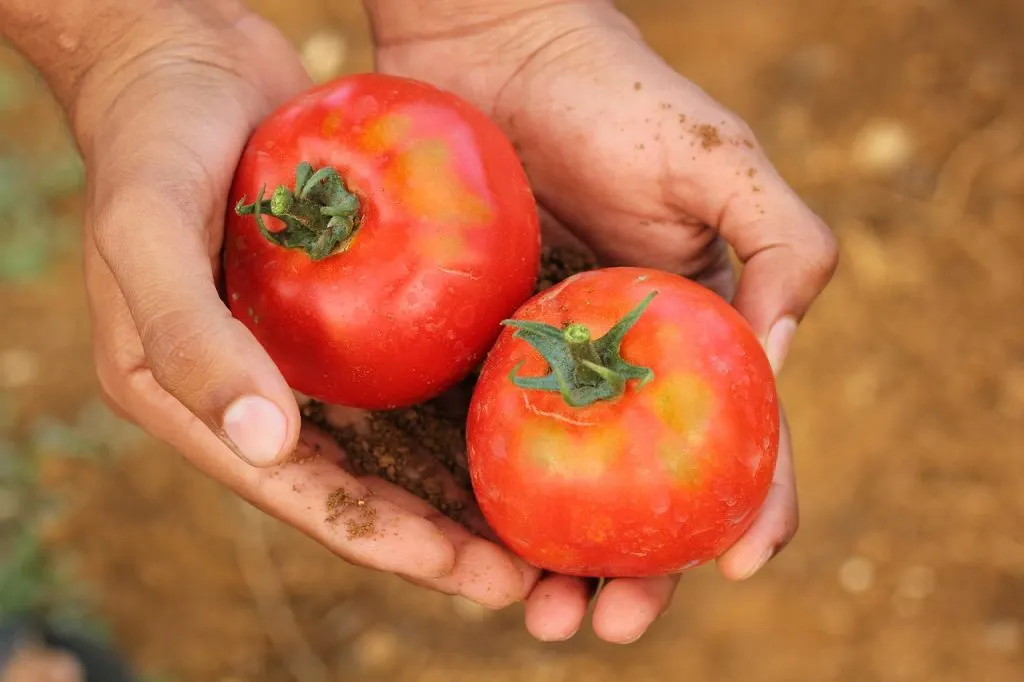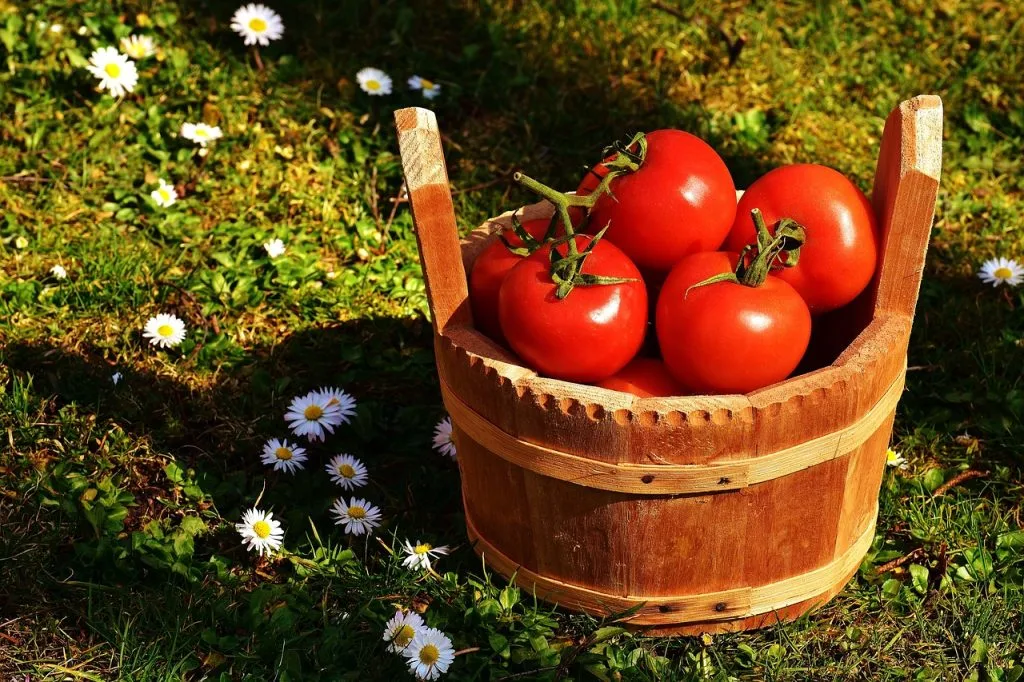Tomatoes, cherished for their succulent taste and adaptability in cooking, hold a special place in gardens.
Nevertheless, cultivating tomatoes successfully can pose challenges, particularly regarding pest management and disease prevention.
Thankfully, a natural method can enhance the vitality and output of your tomato plants: onion husk. In this piece, we’ll explore how integrating onion husk into your tomato cultivation routine can result in flourishing plants and abundant yields.
The Potential of Onion Husk

Onion husk encompasses compounds with inherent pest-deterring qualities, making it a potent and environmentally friendly supplement for your tomato patch.
These compounds repel common garden pests like aphids, thrips, and spider mites, known to inflict damage on tomato plants and diminish yields.
Furthermore, onion husk harbors sulfur compounds with antifungal attributes, aiding in preventing ailments such as early blight and powdery mildew.
Incorporating Onion Husk in Your Tomato Garden

There are various methods to integrate onion husk into your tomato cultivation routine:
Mulching: After drying and crushing, convert onion husks into fine particles, then scatter them around the base of your tomato plants as mulch. This not only wards off pests but also enriches the soil during decomposition.
Infused Solution: Create a natural insect-repelling solution by boiling the onion husk in water, allowing it to cool, and straining the solids. Transfer the infused liquid into a spray bottle and regularly mist your tomato plants to deter pests.
Composting: Incorporate onion husk into your compost heap to boost nutrient content and enhance soil vitality. The sulfur compounds present can also suppress detrimental soil-borne pathogens.
Additional Tips for Cultivating Robust Tomatoes

Aside from utilizing onion husk, consider the following pointers for fostering healthy and prolific tomato plants:
Opt for well-drained soil bathed in ample sunlight for planting tomatoes.
Maintain consistent watering to keep the soil uniformly moist without saturation.
Provide support for tomato plants using stakes or cages to prevent sprawling.
Rotate tomato plants annually to different garden sections to mitigate the risk of soil-borne maladies.
Integrating onion husk into your tomato cultivation regimen can naturally repel pests and stave off diseases, resulting in robust and fruitful plants.
Whether applied as a mulch, a natural spray, or added to compost, this straightforward technique can significantly bolster the prosperity of your tomato patch.
When you embark on tomato planting next time, remember to harness the potency of onion husk for a flourishing harvest.
